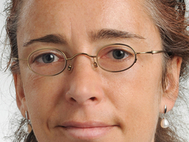
Niche differentiation in the relict, endemic spiny frogs Allopaa hazarensis and Chrysopaa sternosignata
The relict, endemic taxa Allopaa and Chrysopaa are key elements of the Hindu Kush-Himalayan amphibian fauna and share an early-Miocene evolution, making them important proxies for the reconstruction of the Paleogene history of the Tibetan Plateau and the evaluation of respective modern scenarios of the development of the HTO. However, there is no much information on the distribution of these taxa. We here provide species distribution models for both taxa and test the hypotheses of niche differentiation. The average performance of our MaxEnt models was considered significantly better than random. They show, that both taxa are geographically separated with an allopatric distribution pattern, and that BIO8 (mean temperature of wettest quarter) was most important to the models. Further, our findings provide strong support for distinct niche divergence among C. sternosignata and A. hazarensis. The study contributes to the knowledge about the distribution of these species and provide basic information for guiding future management of them.






